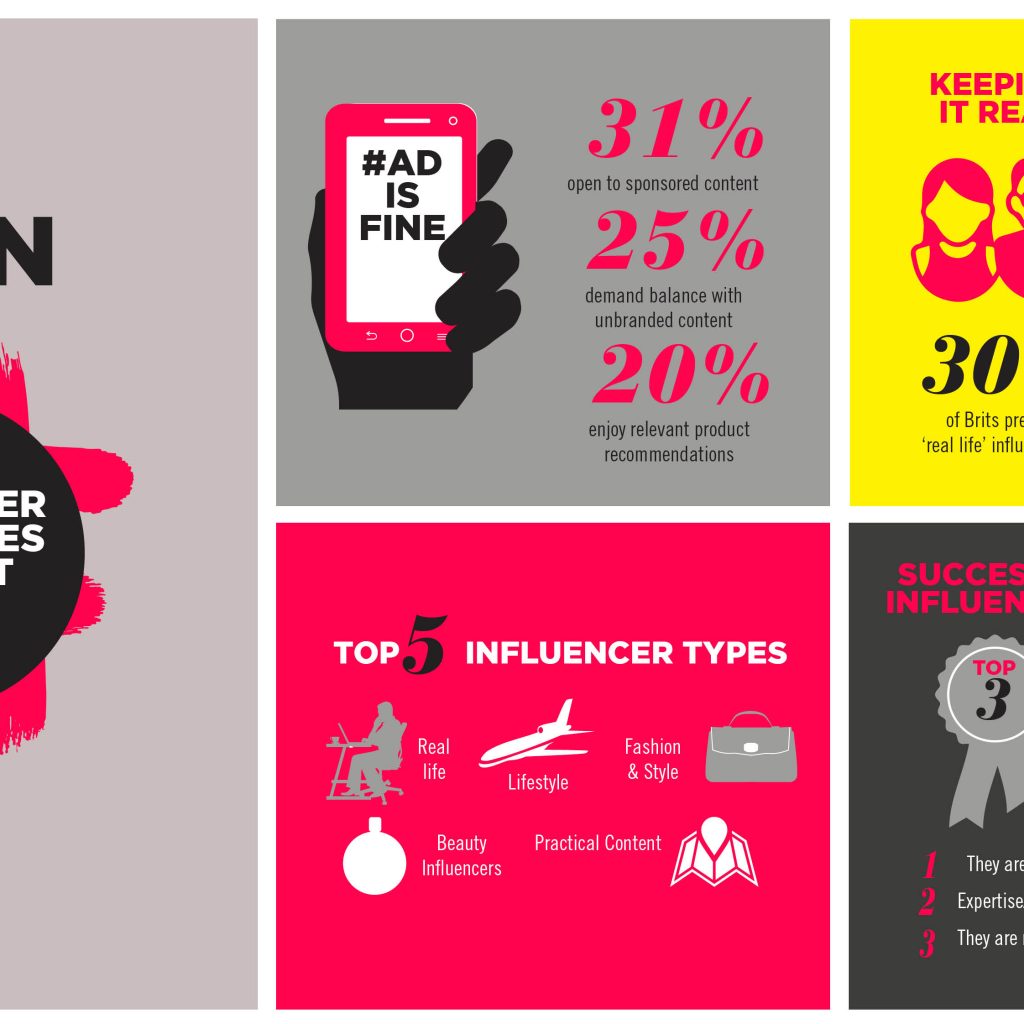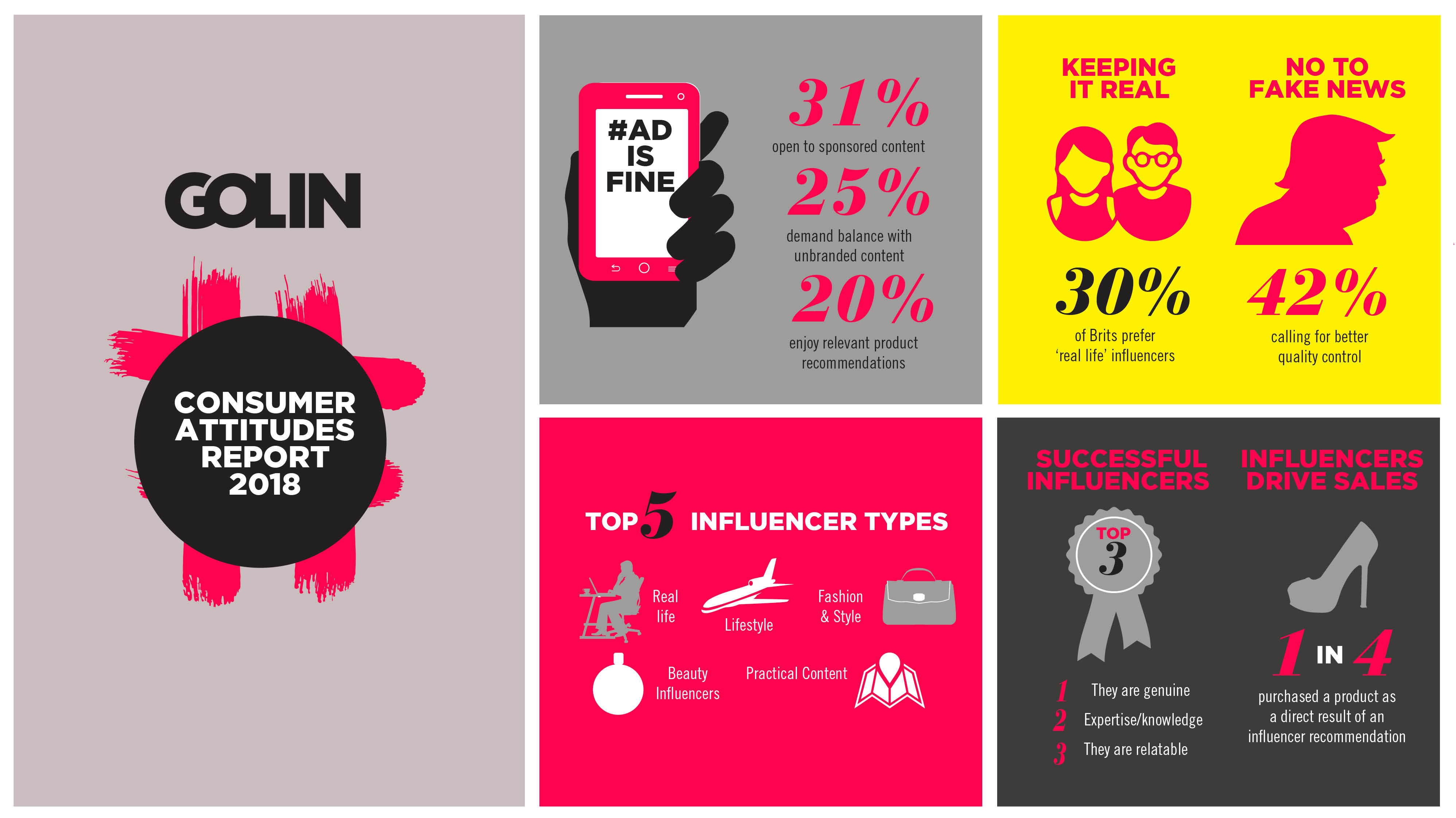LONDON (May 3, 2018) – 1 in 4 individuals have purchased a product as a direct result of a recommendation from an influencer
- Brits are not put off by #ad with 31% of Britons open to sponsored content and 1 in 5 keen for product recommendations
- Brits are 30% more likely to engage with a ‘real life’ influencer – popularity of smaller ‘micro’ influencers for a more personal and relatable connection continues to grow
- But there’s a big watch out for both brands and influencers, with 42% calling for better quality control of fake news and offensive opinions
Influencer recommendations now drive 1 in 4 Brits to purchase, according to an influencer consumer attitudes report.
Research of 1500 British consumers across the UK, commissioned by Golin, found 31% are open to sponsored content with 1 in 5 actively keen for relevant product recommendations from influencers, as long as it aligns to their interests and values.
Brits identified the top three traits of a successful influencer as being genuine, having real expertise and being relatable to their lives.
‘Real life’ influencers, who convey an honest depiction about their ‘real’ lives, beat the relevance of journalists, celebrities and thought leaders to the top spot on a list of the 10 most popular types of influencer, with British consumers a third more likely to engage with a ‘real life’ influencer.
“Many brands still consider follower numbers to be a key metric for their influencer marketing programmes, however it’s increasingly evident that consumers are far less engaged or indeed prompted to purchase by influencers with massive reach. Instead they favour ‘real life’ and honest influencers or those who are relevant to their lives and values. The most important thing to UK influencer audiences is honest experience, it’s no longer about polish and false perfection,” said Will Cooke, executive director strategy & innovations, Golin.
“Golin’s Consumer Attitudes Report shows that audiences are not only conscious that influencers are actively trying to sell to them, but expect it as part of the current content landscape. Britons don’t mind influencer-promoted content about products, as long as it’s relevant to them and balanced with other content,” added Cooke.
Echoing this need for authenticity, 42% Britons are most concerned that brands and influencers are inattentive to fake news and potentially offensive content, calling on them to improve quality control.
“The most important stakeholder in a sponsored post is the audience and this should be a rallying call to brands and influencers to add rigorous quality control to their output, ensuring content stays on-brand and the influencer is matched to the brand values,” finished Cooke.
The Golin Consumer Attitudes Report looked at consumer attitudes towards influencers, celebrities, journalists and thought leaders. The survey was commissioned by Golin and carried out by research company Toluna who surveyed 1,500 consumers in the UK ranging from 21 – 60 years old.

